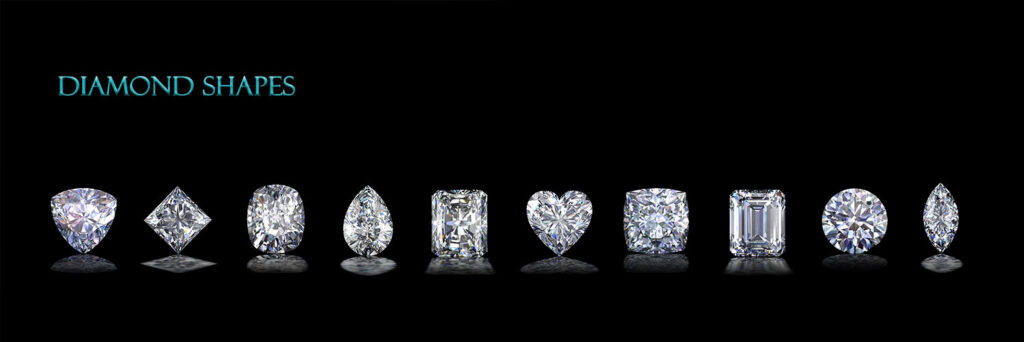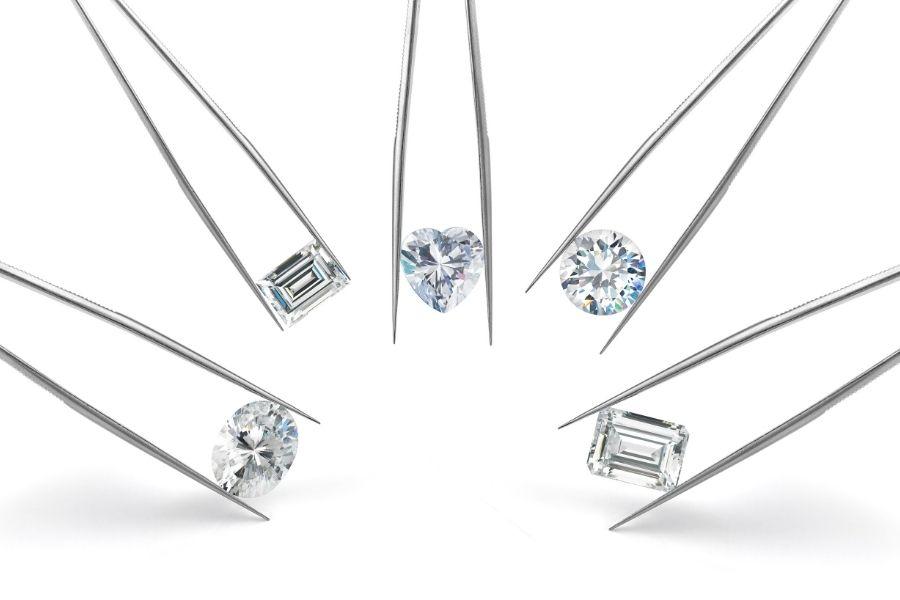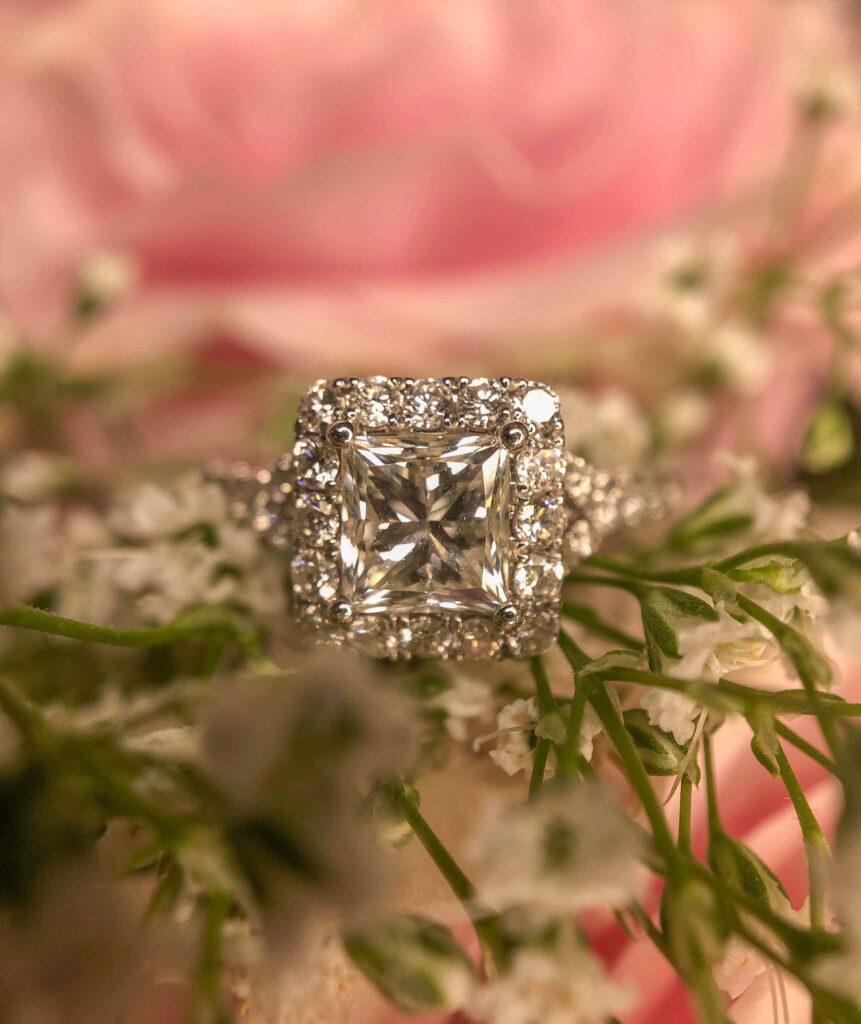
At INVSTONE, we cut all our diamonds for maximum beauty, not weight. The polished shape and faceting style of every diamond is determined by the shape of the original diamond in the rough. Our diamond cutters individually examine each rough diamond to determine which cut will maximise their unique beauty. Just as a sculptor can take a piece of marble and hone it into a work of art, so a combination of technical expertise and talented artistry is required to cut a diamond so that it reflects light and achieves exceptional sparkle.
All diamonds shapes are based on three faceting styles – the round brilliant, the step cut and the princess cut. Round edged diamond shapes, such as the pear, oval, cushion and marquise, are based on the round brilliant. Its facets are arranged in a pattern radiating outward to the gridle outline, resulting in a strong burst of brilliance. Straight edged shapes, including the emerald cut, are based on the step cut. With their facets arranged in a step-like manner, parallel to the girdle outline, the diamonds display an icy clear brilliance. The princess cut is a square variation of the brilliant cut.
Diamond shape is a personal choice as each diamond cut has its own unique characteristics. The diamond shape you choose is a reflection of your own personality and sense of style. At INVSTONE we believe that the most beautiful diamond in the world will choose you. It is often the diamond that you feel so attracted to that you do not want to take it off your hand.
Round Brilliant
Our experts individually hand-select each of our round brilliant diamonds using a rigorous technique introduced by INVSTONE. Only those whose facets are perfectly cut and aligned – ensuring maximum brilliance – can be called a INVSTONE True Brilliant. The exacting alignment of facets in the INVSTONE True Brilliant can be viewed through the INVSTONE Iris.
Pear-shape
The curves of the pear-shaped diamond are some of the most technically difficult to achieve but the result is a classically beautiful cut that combines the sparkle of a round brilliant with the tapering finesse of a marquise-cut. Offering a sense of individuality, it is a shape that is often incorporated into high jewellery designs.
Emerald-cut
For pure timeless elegance, the emerald cut has it all, its clean, rectangular shape with stepped facets creating a ‘hall-of-mirrors’ effect that produces flashes of light. Linear, with the diamond appearing even larger thanks to a greater table surface area, the emerald-cut diamond appeals to lovers of both contemporary and vintage styles alike.
Asscher-cut
A square emerald-cut, the Asscher has an understated classic beauty and strong brilliance, which appeals to those who love straight edges and perfect symmetry.
Princess-cut
The princess-cut diamond features clean lines and sharply defined corners, combined with the kind of supreme sparkle you expect from a round brilliant cut, thanks to its incredible multi-faceting. Marrying timeless appeal with a contemporary edge, it sits well with designs that incorporate pave diamonds, just as it looks exceptional as a solitaire.


Oval-shape
In terms of faceting, the oval-shape is a modified form of the round brilliant, possessing a similar ability to reflect light and maximise sparkle. Its elongated shape not only creates an illusion of a greater carat weight but can also make the fingers appear more slender.
Cushion-cut
Whether square or rectangular in shape, the cushion-cut combines impressively cut facets for dazzling sparkle with softly rounded corners for a touch of subtlety. The result is a cut that is characterised by a sense of harmony. One of the most historical cuts, it originated over 200 years ago.
Marquise-shape
This long, narrow cut is another modified version of the round brilliant. It dates back to the 1700s when legend has it Louis XV of France requested a diamond cut to resemble the perfectly shaped mouth of his mistress, Marquise de Pompadour. Its shape has the effect of appearing to maximise the carat weight and elongating the fingers.
Radiant Cut
This non-traditional cut combines the purity of the emerald cut with the sparkle of a round brilliant. Originating in the 1970s, radiant-cut diamonds are ideal for the lovers of perfect symmetry combined with glamorous brilliance.
Heart Shape
Considered one of the most romantic cuts, the heart shape is based on the round brilliant, with a cleft at the top. Its popularity dates back to the 16th century, when May Queen of Scots famously gave Queen Elizabeth a heart-shaped diamond ring as a gift of friendship.
